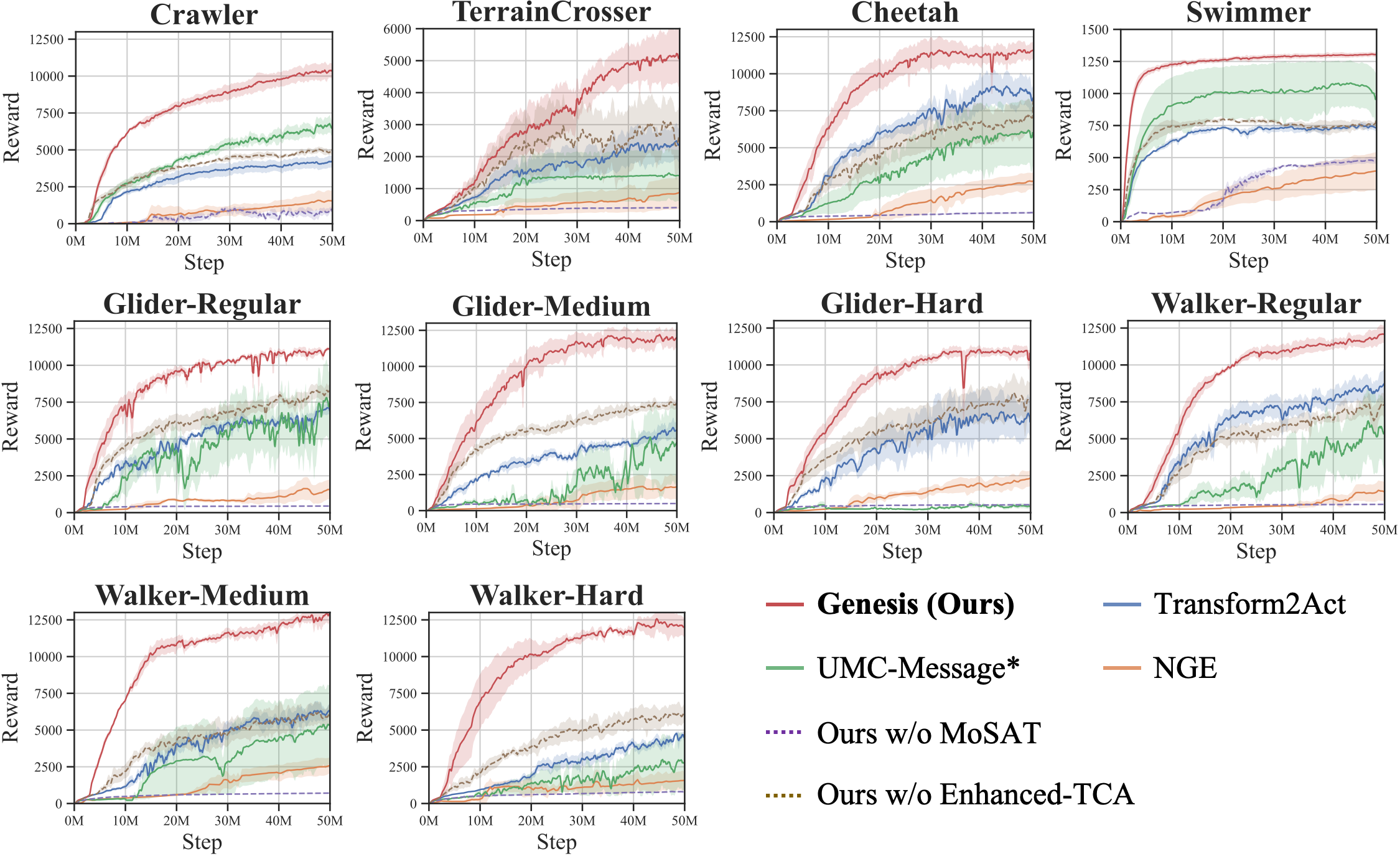Methods

BodyGen is an RL-based framework for embodiment co-design, which optimizes morphology and control simultaneously. It achieves centralized, zero-decay message processing based on limb-level self-attention, message localization via Topology Position Encoding, and enhanced temporal credit assignment for balanced reward signals.

For embodiment co-design, besides differentiating message source within the body, we require an evolution-aware morphology representation. We propose Topology Position Encoding (TopoPE), to better adapt to the evolving process. It not only achieves message localization but also faciliates knowledge sharing within the dynamically growing body.
